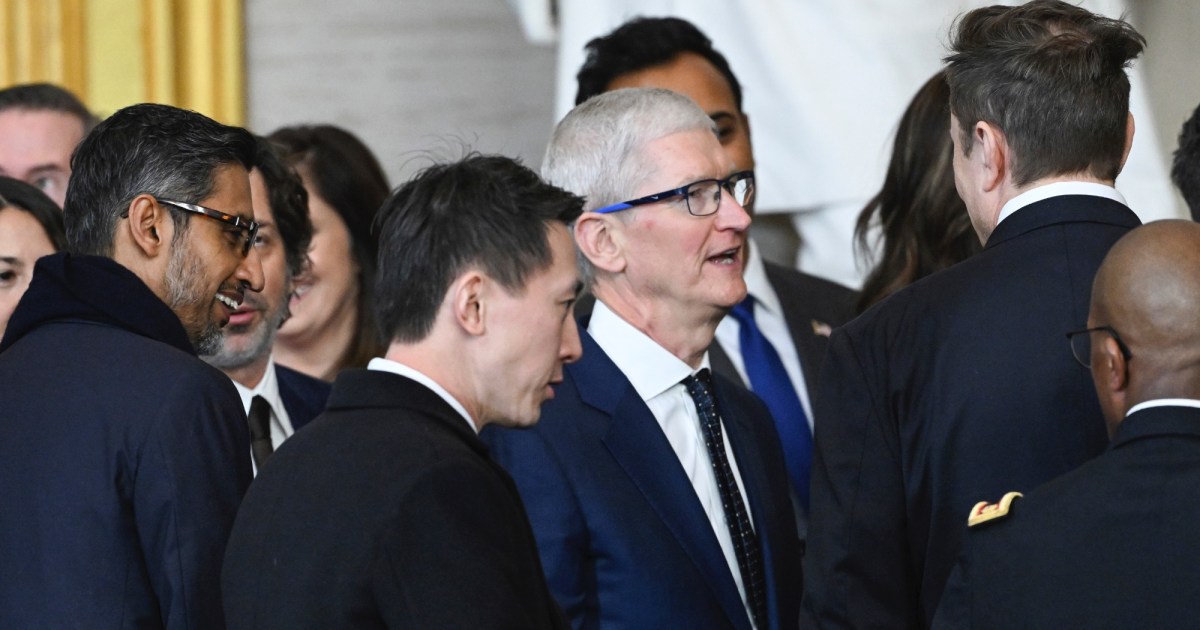The Social Media Landscape Shifts: Understanding TikTok’s Negotiations
As TikTok engages in high-stakes negotiations with the Trump administration, this pivotal moment signals a dramatic shift in the social media landscape. With every major platform adapting to the new political climate, what does the future hold for digital communication? This question not only reflects the immediate concerns around TikTok’s future but also highlights broader trends that are reshaping how we interact online. In this article, we’ll explore these changes, the implications of TikTok’s negotiations, and what it means for the future of social media.
The Context of TikTok’s Negotiations
TikTok, a platform that has rapidly gained popularity among younger audiences, particularly during the COVID-19 pandemic, finds itself at the center of a complex geopolitical struggle. The negotiations with the Trump administration have been driven by concerns over data privacy and national security. The app, owned by Chinese company ByteDance, has faced scrutiny due to fears that user data could be accessed by the Chinese government.
In the wake of these concerns, the U.S. government has pushed for a divestiture of TikTok’s U.S. operations. This demand has led to intense discussions about potential partnerships with American companies, including Microsoft and Oracle, which have shown interest in acquiring TikTok’s operations in the U.S. These negotiations are not just about the future of one app; they represent a significant shift in the regulatory landscape for social media platforms.
How TikTok’s Situation Reflects Broader Industry Changes
The TikTok negotiations are emblematic of a larger trend in the social media industry where platforms are increasingly scrutinized for their data practices and geopolitical ties. The following points illustrate how these negotiations reflect broader industry changes:
- Increased Regulatory Scrutiny: Governments around the world are beginning to take a closer look at how social media companies handle user data. This scrutiny is not limited to TikTok; platforms like Facebook and Twitter have also faced significant backlash over privacy issues.
- National Security Concerns: The TikTok negotiations underscore the growing concern that foreign-owned apps could pose risks to national security. This trend is likely to affect how other platforms operate internationally, as they may need to navigate similar political tensions.
- Market Dynamics: The potential sale of TikTok’s U.S. operations signals a shift in how tech companies may need to partner or divest to appease government concerns. This could lead to a new wave of mergers, acquisitions, and partnerships among social media platforms.
The Impact on Digital Communication
As the negotiations unfold, the implications for digital communication are profound. Here are some potential outcomes:
- Shift in User Trust: The ongoing debates around data privacy and security may lead to a decline in user trust across all social media platforms. Users are becoming increasingly aware of how their data is used, and they may begin to favor platforms that prioritize transparency and security.
- Innovations in Privacy Features: In response to heightened scrutiny, social media platforms may introduce new features aimed at enhancing user privacy. This could include more robust data protection policies and clearer user consent processes.
- Emergence of New Platforms: As established platforms face regulatory challenges, there is a possibility that new entrants could disrupt the market. Innovative platforms that prioritize user privacy and are free from geopolitical baggage could gain traction.
The Future of Social Media: What Lies Ahead?
The outcome of TikTok’s negotiations will undoubtedly have ripple effects across the social media landscape. Here are some projections for the future:
- Fragmentation of Platforms: Social media may become more fragmented as different platforms cater to specific user demographics and interests. This could lead to a diversification of content and community types, impacting how brands and marketers approach their audiences.
- Heightened Competition: As platforms adapt to new regulations and user demands, competition will intensify. Companies will be forced to innovate continually, enhancing user experiences and ensuring data protection.
- Integration of Augmented Reality (AR) and Virtual Reality (VR): As users seek more immersive experiences, platforms may increasingly incorporate AR and VR technologies. This integration could transform how users engage with content and each other.
Conclusion: Embracing Change in the Social Media Landscape
The negotiations surrounding TikTok are just one chapter in the ongoing evolution of the social media landscape. As platforms navigate the complexities of regulatory scrutiny, geopolitical tensions, and user preferences, they must adapt to remain relevant and trusted. The future of digital communication will likely be shaped by these negotiations, but it is also an opportunity for innovation and growth.
In this rapidly changing environment, it is essential for users, creators, and businesses alike to stay informed and engaged. Embracing the shifts in social media will not only prepare stakeholders for the challenges ahead but also empower them to leverage new opportunities in a transformed digital ecosystem.
As we look ahead, one thing is clear: the social media landscape will continue to shift, and those who adapt will thrive in this new era of digital communication.
See more Future Tech Daily

